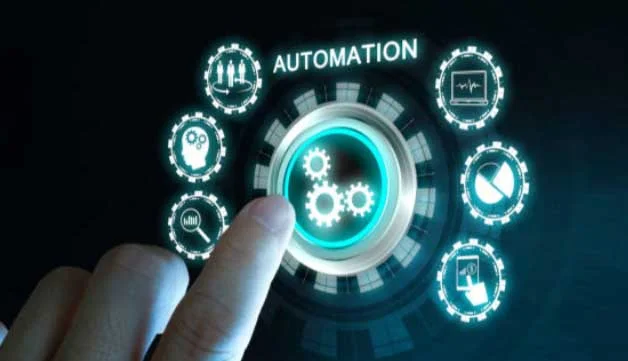The Age of Automation: A Revolution Across Industries
Automation technology has emerged as a game-changer, revolutionizing industries around the world. From manufacturing to healthcare, automation is transforming the way businesses operate, providing increased efficiency, precision, and productivity. This blog post explores the impact of automation technology on various sectors and discusses how it is shaping our future.
The Benefits of Automation in Manufacturing
Manufacturing has seen a significant shift due to automation technology. By incorporating robots and AI into production processes, manufacturers can streamline operations, reduce costs, and improve product quality. Automation enables repetitive and mundane tasks to be carried out with precision and accuracy, leading to enhanced productivity and higher output. The ability of machines to work tirelessly without breaks or fatigue greatly boosts overall efficiency.
Moreover, automation technology ensures worker safety by taking over dangerous or physically demanding tasks. This not only reduces the risk of accidents but also allows human resources to focus on more complex and creative endeavors. By automating manufacturing processes, businesses gain a competitive edge, delivering products faster and with higher levels of customization.
Automation in Healthcare: Saving Lives and Enhancing Patient Care
The healthcare industry is another sector experiencing the profound impact of automation technology. From robotic surgeries to AI-powered diagnostic tools, automation has revolutionized patient care. Surgical robots provide unmatched precision, reducing the risk of errors and shortening recovery times. Automated systems also assist healthcare professionals in analyzing medical data, leading to accurate diagnoses and personalized treatment plans.
Additionally, automation facilitates administrative tasks such as appointment scheduling, electronic medical records management, and inventory control. By automating these processes, healthcare providers can allocate more time and resources to direct patient care, improving overall efficiency and satisfaction.
Automating Agriculture for Sustainable Food Production
The agriculture industry is transforming as automation technology becomes increasingly integrated. Automated machinery, drones, and AI-powered sensors are enabling farmers to optimize crop yields, reduce resource consumption, and minimize environmental impact. These technologies aid in precision farming, allowing farmers to monitor and adjust factors like irrigation, fertilization, and pest control with precision.
Moreover, automation enables data-driven decision-making, empowering farmers to make educated choices based on real-time information. From planting to harvesting, automation is revolutionizing traditional farming practices, enhancing productivity and sustainability for a growing global population.
Challenges and Future Implications of Automation
While automation offers numerous benefits, it brings forth certain challenges and considerations. One concern is the potential displacement of jobs. As machines take over routine tasks, there is a need for re-skilling and upskilling the workforce to adapt to the changing job landscape.
Another challenge is the ethical use of automation technology. As AI advances, questions regarding privacy, data security, and algorithm biases arise. Striking a balance between embracing automation and ensuring responsible use is crucial for a sustainable and inclusive future.
Looking ahead, automation technology will continue to evolve and disrupt industries, creating new opportunities and challenges. Embracing automation will require ongoing innovation, collaboration, and adaptability to fully unlock its potential.
Conclusion
Automation technology is revolutionizing industries across the globe, driving increased efficiency, precision, and productivity. Manufacturing, healthcare, and agriculture are just a few sectors heavily impacted by automation. Benefits such as improved safety, enhanced patient care, and sustainable farming practices are transforming the way we work and live.
Yet, challenges such as job displacement and ethical considerations must be addressed. Ultimately, it is by embracing automation, while ensuring responsible use, that we can fully harness its transformative potential. As automation technology continues to advance, continued research, innovation, and adaptation will shape our future.

